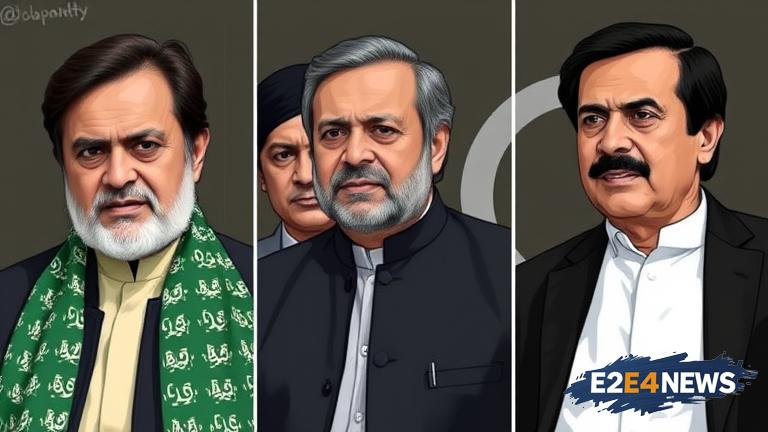In a significant development, the Faisalabad Anti-Terrorism Court (ATC) has sentenced key Pakistan Tehreek-e-Insaf (PTI) leaders, including Omar Ayub and Shibli Faraz, to 10 years in jail for their alleged involvement in the May 9 riots. The court’s verdict has sent shockwaves across the country, with many terming it as a major setback for the PTI. The May 9 riots were sparked by the arrest of former Prime Minister Imran Khan, which led to widespread protests and violence across Pakistan. The PTI leaders were accused of inciting violence and attacking law enforcement personnel during the riots. The Faisalabad ATC, which conducted the trial, found the accused guilty of various charges, including terrorism, rioting, and attacking police personnel. The court’s decision has been met with widespread criticism from PTI supporters, who claim that the trial was unfair and that the accused were denied a fair chance to defend themselves. The PTI has vowed to challenge the verdict in a higher court, terming it as a ‘politically motivated’ decision. The development has also sparked concerns about the state of democracy in Pakistan, with many questioning the independence of the judiciary. The May 9 riots were widely condemned by human rights organizations and the international community, which called for restraint and calm. The Pakistani government has maintained that it will not tolerate any form of violence or terrorism, and that those responsible for the riots will be brought to justice. The PTI, on the other hand, has claimed that the government is trying to suppress its supporters and silence its leaders. The situation remains tense, with many fearing that the verdict could lead to further unrest and instability in the country. The international community has called for calm and restraint, urging all parties to respect the rule of law and the democratic process. The Pakistani government has assured that it will take all necessary measures to maintain law and order, and that those responsible for the riots will be held accountable. The PTI has announced plans to hold country-wide protests against the verdict, which could potentially lead to further clashes with law enforcement personnel. The situation is being closely monitored by the international community, which is urging all parties to engage in dialogue and find a peaceful resolution to the crisis. The Pakistani judiciary has come under scrutiny, with many questioning its independence and impartiality. The PTI has claimed that the judiciary is biased against it, and that the verdict is a clear example of this bias. The government has maintained that the judiciary is independent and impartial, and that the verdict is based on the evidence presented in court. The development has significant implications for the future of Pakistani politics, with many wondering what the verdict could mean for the PTI and its leaders. The party has vowed to continue its struggle for justice and democracy, despite the setback. The international community has urged all parties to respect the democratic process and the rule of law, and to find a peaceful resolution to the crisis. The situation remains fluid, with many developments expected in the coming days and weeks. The Pakistani government has assured that it will do everything in its power to maintain law and order, and that those responsible for the riots will be held accountable. The PTI has announced plans to challenge the verdict in a higher court, and to continue its struggle for justice and democracy. The development has sparked widespread debate and discussion, with many wondering what the future holds for Pakistani politics. The international community has called for calm and restraint, urging all parties to engage in dialogue and find a peaceful resolution to the crisis. The Pakistani judiciary has come under scrutiny, with many questioning its independence and impartiality. The PTI has claimed that the judiciary is biased against it, and that the verdict is a clear example of this bias. The government has maintained that the judiciary is independent and impartial, and that the verdict is based on the evidence presented in court.
